Abstract
Nine patients with mesenchymal tumors of the skull base have undergone radical tumor excision by the use of the Infratemporal fossa approach. Three cases of chondrosarcoma, two of leiomyosarcoma, and one case each of synovial sarcoma, chondroid chordoma, myxoma, and fibromatosis were managed. In the mean postoperative review time of 6.6 years (range 1.7 to 13) there are no clinical or radiologic signs of recurrence at the primary site in any patient, although two have developed distant metastases. The purpose of this article is to demonstrate that, with aggressive and preferably early surgical management using this type of access to the skull base, complete removal of these tumors can be undertaken, and it is now possible to achieve permanent ablation of this type of pathologic condition at the skull base.
Full text
PDF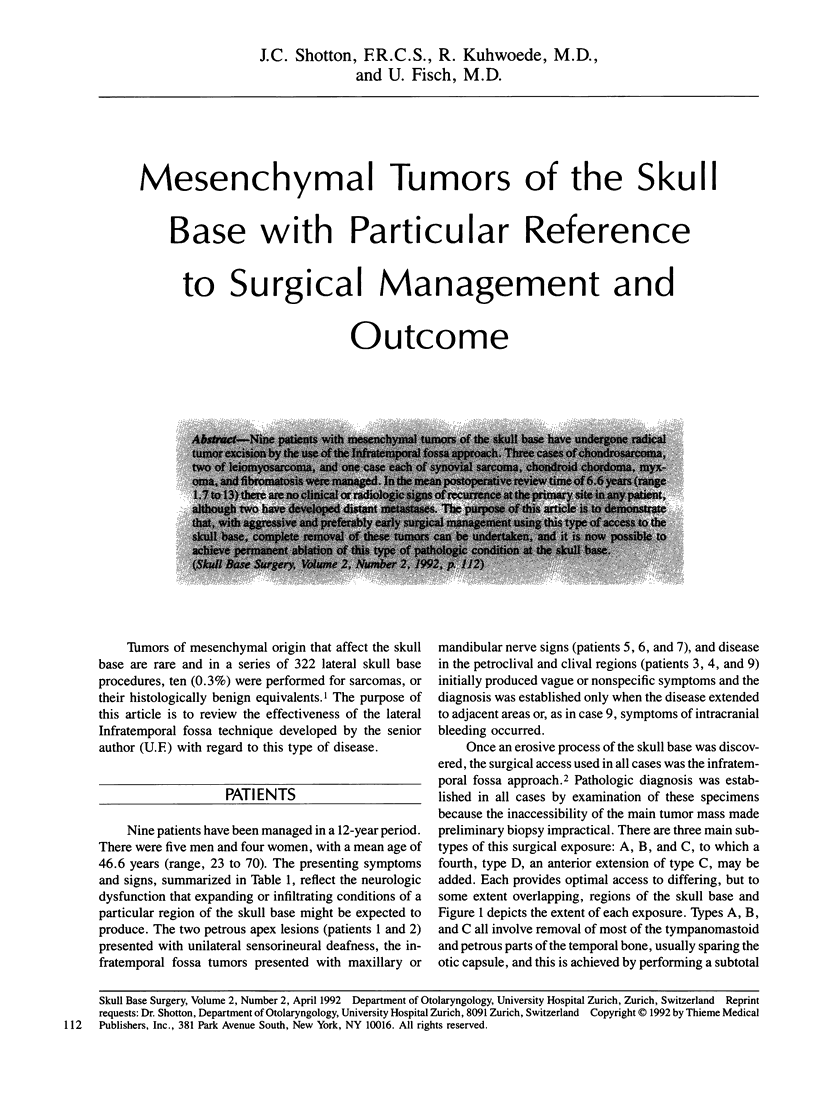
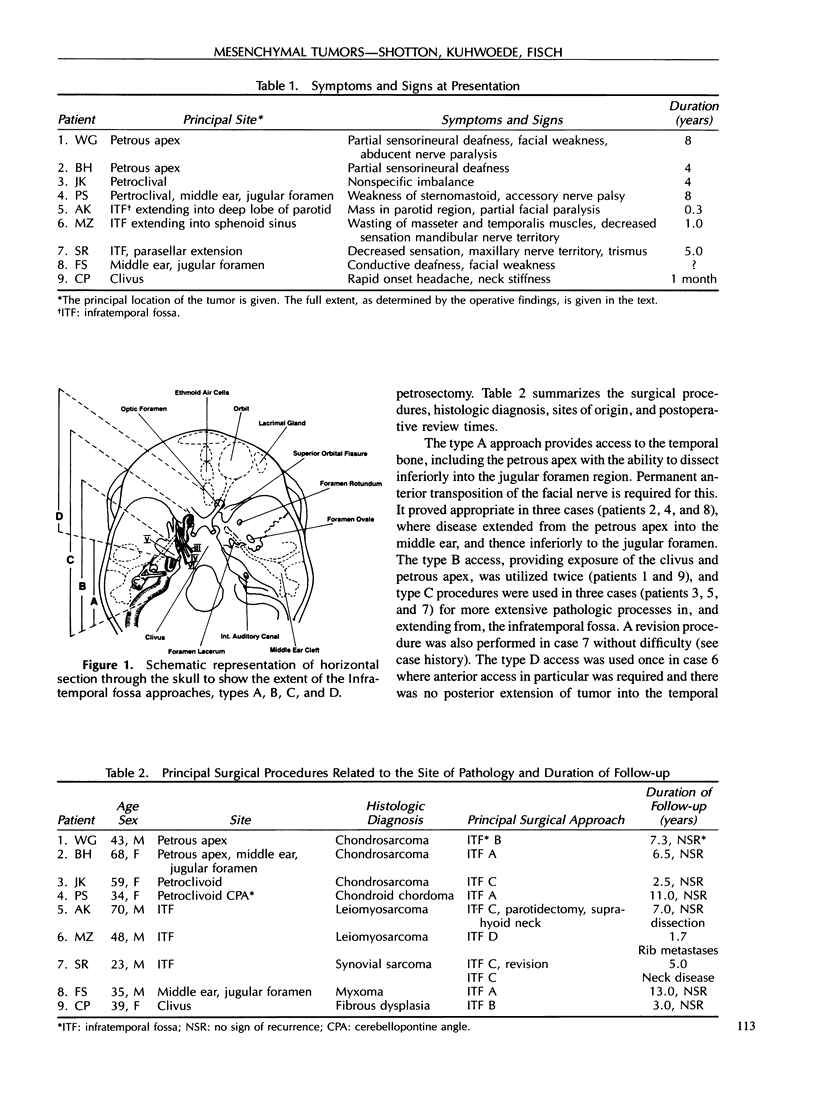
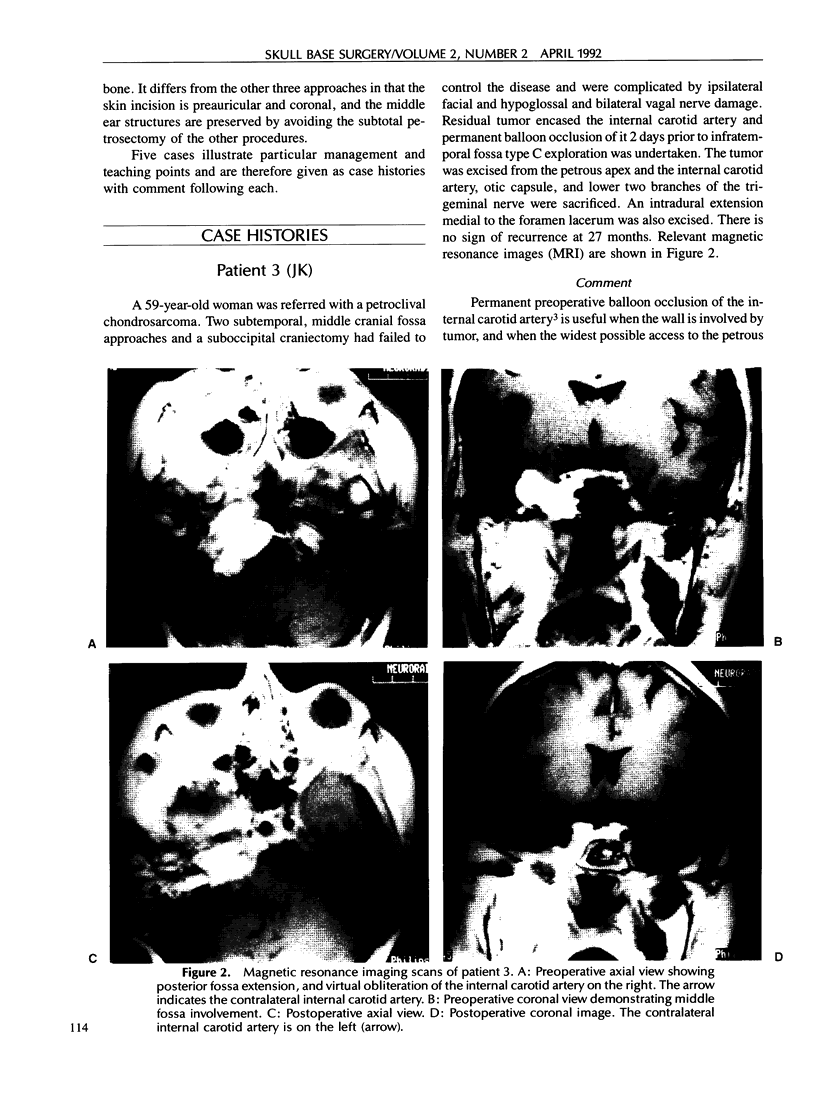
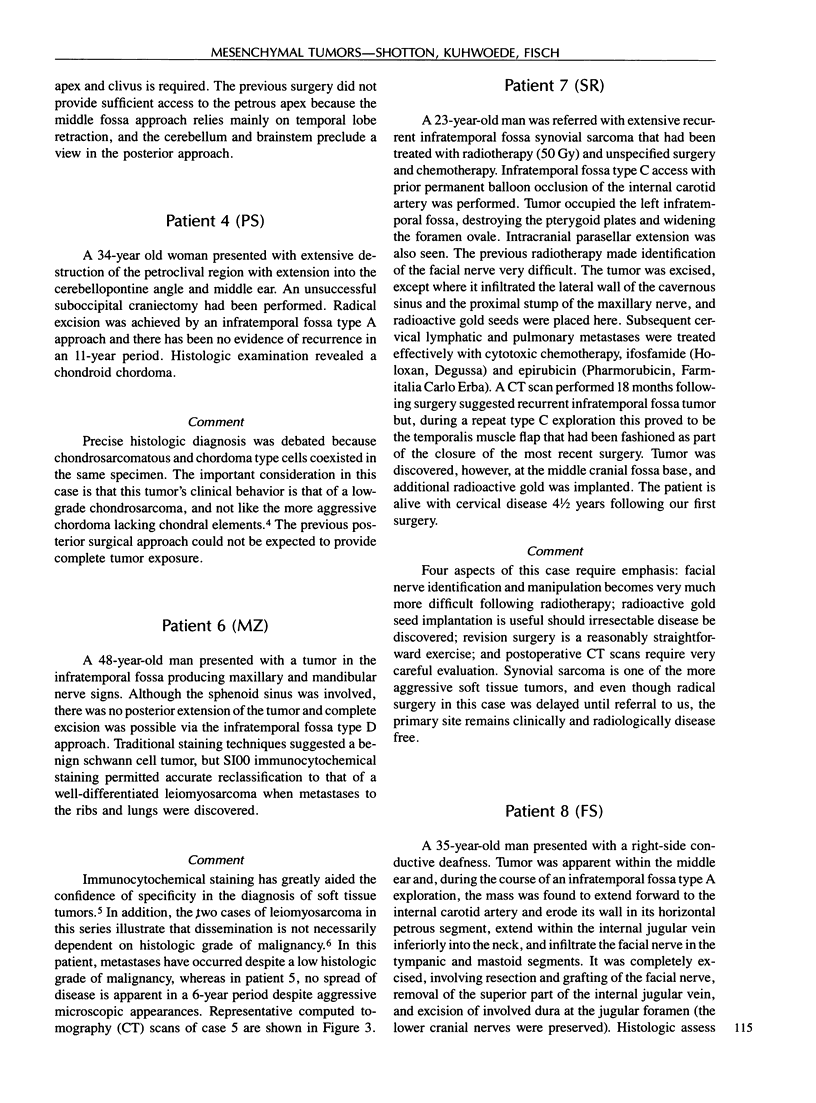
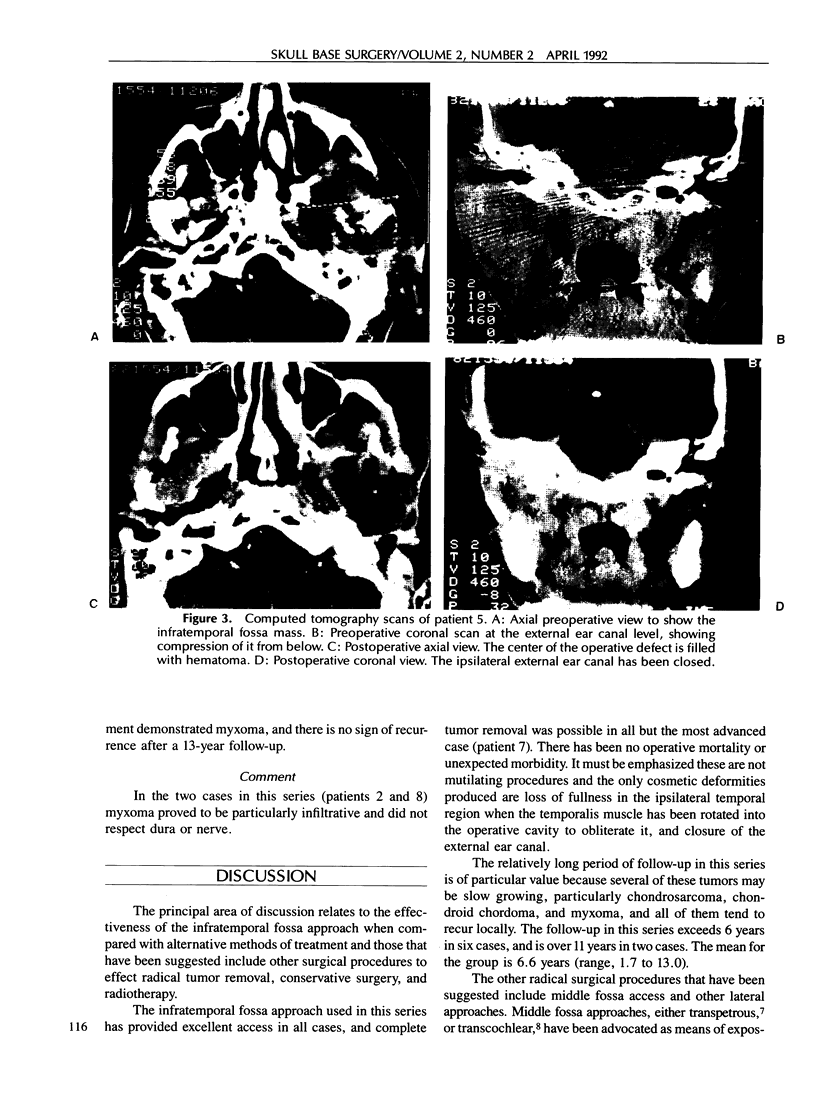

Images in this article
Selected References
These references are in PubMed. This may not be the complete list of references from this article.
- Al-Mefty O., Fox J. L., Rifai A., Smith R. R. A combined infratemporal and posterior fossa approach for the removal of giant glomus tumors and chondrosarcomas. Surg Neurol. 1987 Dec;28(6):423–431. doi: 10.1016/0090-3019(87)90224-2. [DOI] [PubMed] [Google Scholar]
- Andrews J. C., Valavanis A., Fisch U. Management of the internal carotid artery in surgery of the skull base. Laryngoscope. 1989 Dec;99(12):1224–1229. doi: 10.1288/00005537-198912000-00003. [DOI] [PubMed] [Google Scholar]
- Fisch U., Fagan P., Valavanis A. The infratemporal fossa approach for the lateral skull base. Otolaryngol Clin North Am. 1984 Aug;17(3):513–552. [PubMed] [Google Scholar]
- Gacek R. R. Diagnosis and management of primary tumors of the petrous apex. Ann Otol Rhinol Laryngol. 1975 Jan-Feb;84(1 Pt 2 Suppl 18):1–20. doi: 10.1177/0003489475084S1801. [DOI] [PubMed] [Google Scholar]
- Heffelfinger M. J., Dahlin D. C., MacCarty C. S., Beabout J. W. Chordomas and cartilaginous tumors at the skull base. Cancer. 1973 Aug;32(2):410–420. doi: 10.1002/1097-0142(197308)32:2<410::aid-cncr2820320219>3.0.co;2-s. [DOI] [PubMed] [Google Scholar]
- House W. F., Hitselberger W. E., Horn K. L. The middle fossa transpetrous approach to the anterior-superior cerebellopontine angle. Am J Otol. 1986 Jan;7(1):1–4. [PubMed] [Google Scholar]
- House W. F., Hitselberger W. E. The transcochlear approach to the skull base. Arch Otolaryngol. 1976 Jun;102(6):334–342. doi: 10.1001/archotol.1976.00780110046004. [DOI] [PubMed] [Google Scholar]
- Kahn H. J., Marks A., Thom H., Baumal R. Role of antibody to S100 protein in diagnostic pathology. Am J Clin Pathol. 1983 Mar;79(3):341–347. doi: 10.1093/ajcp/79.3.341. [DOI] [PubMed] [Google Scholar]
- Sekhar L. N., Schramm V. L., Jr, Jones N. F. Subtemporal-preauricular infratemporal fossa approach to large lateral and posterior cranial base neoplasms. J Neurosurg. 1987 Oct;67(4):488–499. doi: 10.3171/jns.1987.67.4.0488. [DOI] [PubMed] [Google Scholar]
- Suit H. D., Goitein M., Munzenrider J., Verhey L., Davis K. R., Koehler A., Linggood R., Ojemann R. G. Definitive radiation therapy for chordoma and chondrosarcoma of base of skull and cervical spine. J Neurosurg. 1982 Mar;56(3):377–385. doi: 10.3171/jns.1982.56.3.0377. [DOI] [PubMed] [Google Scholar]
- Wolff M., Silva F., Kaye G. Pulmonary metastases (with admixed epithelial elements) from smooth muscle neoplasms. Report of nine cases, including three males. Am J Surg Pathol. 1979 Aug;3(4):325–342. doi: 10.1097/00000478-197908000-00004. [DOI] [PubMed] [Google Scholar]




